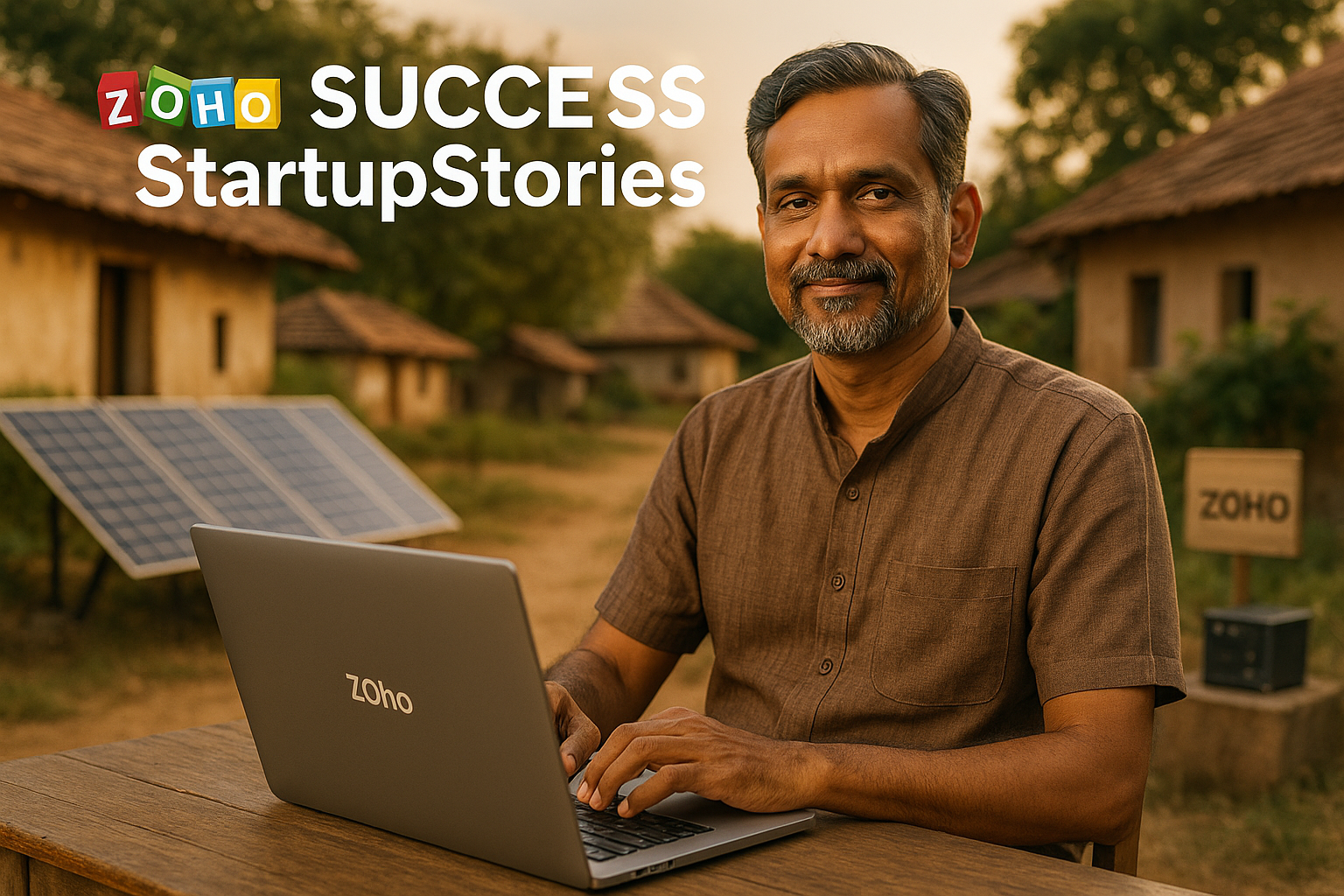Can you build a billion-dollar global software company without raising a single dollar from investors? Sridhar Vembu, founder and CEO of Zoho Corporation, has done just that. From humble beginnings in Tamil Nadu to creating a SaaS empire competing with global giants like Salesforce and Microsoft, Vembu’s journey is a masterclass in sustainable growth, innovation, and rural empowerment.
Early Life and the Seeds of Entrepreneurship
Sridhar Vembu was born in 1968 into a modest family in Tanjore, Tamil Nadu. An exceptional student, he graduated from IIT Madras and later earned a PhD from Princeton University. He began his career at Qualcomm in the U.S., but his desire to create meaningful impact brought him back to India.
In 1996, he co-founded AdventNet, a software company initially focused on network management. What followed was a rollercoaster ride of challenges, including the dot-com bust, but also the pivot that laid the foundation for Zoho’s meteoric rise.
The Birth and Growth of Zoho Corporation
Post-2000, AdventNet transitioned into cloud-based software under the Zoho brand. This move was visionary—years before SaaS became mainstream. In 2009, the company was officially rebranded as Zoho Corporation. By focusing on developing a full suite of business tools like Zoho CRM, Zoho Books, and Zoho One, the company quickly found a global audience.
What set Zoho apart? A refusal to take any VC funding. Vembu chose to bootstrap, growing at their own pace without pressure from investors. This strategy enabled long-term thinking, continuous R&D, and a strong customer-first mindset.
Key Milestones and Achievements
- 2009: AdventNet becomes Zoho Corporation; shift to cloud-based services begins.
- 2017: Launch of Zoho One, a suite of 40+ integrated apps.
- 2021: Sridhar Vembu receives the Padma Shri, India’s fourth-highest civilian honor.
- 2022: Zoho’s annual revenue crosses $1 billion.
- 2023: User base exceeds 80 million in over 180 countries.
Under Vembu’s leadership, Zoho also grew its employee base to 12,000+, with offices not just in tech hubs but also in remote towns.
Innovation with a Purpose
Zoho reinvests nearly 50% of its revenue into R&D, ensuring continuous innovation across its products. Tools like Zoho Desk and Zoho Projects offer affordable, user-friendly alternatives to expensive enterprise solutions, especially for small and mid-sized businesses.
But innovation at Zoho isn’t just about technology—it’s about ideology. Vembu rejected the Silicon Valley playbook. Instead, he built development centers in villages like Tenkasi, proving that world-class software can come from rural India. He even runs Zoho Schools, offering free vocational training to rural youth who may not have college degrees.
Core Philosophies and Leadership Style
Sridhar Vembu’s leadership philosophy centers around self-reliance, frugality, and community development. He believes in building technology that lasts—not just to scale fast. This belief informs every decision, from product roadmaps to talent acquisition. His contrarian thinking has made Zoho a symbol of resilience and integrity in the tech world.
Wrapping Up
Sridhar Vembu’s story is one of grit, vision, and values. In a world obsessed with hyper-growth and venture capital, he took the road less traveled—proving that with focus, innovation, and purpose, even the biggest dreams can come true. Zoho’s success is not just a business triumph; it’s a movement toward ethical entrepreneurship and inclusive growth. For anyone dreaming of building a global brand on their own terms, this is the blueprint.
Frequently Asked Questions (FAQs)
Q1. Who is Sridhar Vembu?
Sridhar Vembu is the founder and CEO of Zoho Corporation, a bootstrapped Indian SaaS company serving over 80 million users worldwide. He is known for his rural development initiatives and innovation in the software space.
Q2. What makes Zoho different from other SaaS companies?
Zoho is entirely bootstrapped, meaning it has never raised external funding. This independence allows the company to focus on long-term goals, customer-centric products, and rural employment.
Q3. Why is Sridhar Vembu considered a visionary?
Vembu anticipated the SaaS revolution and invested heavily in R&D before it was mainstream. His decision to build from rural India while serving global clients is considered groundbreaking.
Q4. What are Zoho’s most popular products?
Some of Zoho’s flagship products include Zoho CRM, Zoho Books, Zoho Desk, Zoho Creator, and Zoho One—an all-in-one suite of over 45 business applications.
Q5. How does Zoho contribute to rural India?
Zoho runs offices and R&D centers in small towns like Tenkasi, providing jobs and education through Zoho Schools. This model empowers rural youth and reduces migration to cities.
